Stephanie B. Blake's Blog, page 7
November 2, 2012
The Painful Path to Empathy
A Christmas Carol was the first of five Christmas books written by Charles Dickens. The Haunted Man and the Ghost's Bargain, a lesser known work, was the last of that series.
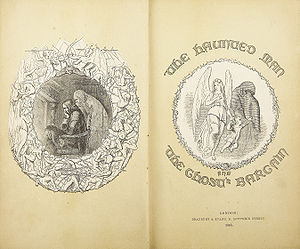 The Haunted Man, Professor Redlaw, is haunted by his sorrowful past. The only redeeming feature of his youth was a sister who died. The memories are continually brought before him by a Phantom who offers him relief. When he allowed the Spectre to cancel his remembrances, Redlaw made a surprising discovery. Not only did his memory of sorrow and wrong leave him, so did any element of softness and caring for others. Even worse, that gift is passed on to others around him with similar consequences.
The Haunted Man, Professor Redlaw, is haunted by his sorrowful past. The only redeeming feature of his youth was a sister who died. The memories are continually brought before him by a Phantom who offers him relief. When he allowed the Spectre to cancel his remembrances, Redlaw made a surprising discovery. Not only did his memory of sorrow and wrong leave him, so did any element of softness and caring for others. Even worse, that gift is passed on to others around him with similar consequences.
Unaffected by this desire to forget sorrow and loss is Milly Swidger who had lost her only child. A sweet simple woman, Milly tells her husband, "I am happy in the recollection of it...All through life, it seems by me, to tell me something. For poor neglected children, my little child pleads as if it were alive, and had a voice I knew, with which to speak to me. When I hear of youth in suffering or shame, I think that my child might have come to that, perhaps, and that God took it from me in His mercy...that even when my little child was born and dead but a few days, and I was weak and sorrowful, and could not help grieving a little, the thought arose, that if I tried to lead a good life, I should meet in Heaven a bright creature, who would call me, Mother!"
Observing Milly's unusual application of her sorrow and loss, Redlaw comes to himself, praying, "O Thou who through the teaching of pure love, hast graciously restored me to the memory which was the memory of Christ upon the Cross, and of all the good who perished in His cause, receive my thanks, and bless her!"
At the end of the story, Dickens suggests "that the Ghost was but the representation of his gloomy thoughts, and Milly the embodiment of his better wisdom."
I have seen Dickens' moral carried out in everyday life. Many kind hearted people attempt to sympathize with those in sorrow and pain, but it is those with similar experiences who make the largest contributions to healing. A mother who has had a stillborn child can comfort another mother like no one else can. Military families who have sent their loved ones to war can understand each other's needs - often knowing what to do without being asked. A parent who has a wayward child can sit with another parent with a unique bonding and empathy. Those who have lost their jobs in an economic downturn are able to help each other in a special way. Homeless people can band together to become a community. And on it goes. People who have been there, done that are those who understand the most.
Christians have a Lord who empathizes with our sorrows and pains. His suffering was a choice - so that we knew that He could understand, empathize and give guidance and comfort when comfort is needed.
Praise be to the God and Father of our Lord Jesus Christ, the Father of compassion and the God of all comfort, who comforts us in all our troubles, so that we can comfort those in any trouble with the comfort we ourselves have received from God. For just as the sufferings of Christ flow over into our lives, so also through Christ our comfort overflows (2 Corinthians 1:3-5 NIV).
 The Haunted Man, Professor Redlaw, is haunted by his sorrowful past. The only redeeming feature of his youth was a sister who died. The memories are continually brought before him by a Phantom who offers him relief. When he allowed the Spectre to cancel his remembrances, Redlaw made a surprising discovery. Not only did his memory of sorrow and wrong leave him, so did any element of softness and caring for others. Even worse, that gift is passed on to others around him with similar consequences.
The Haunted Man, Professor Redlaw, is haunted by his sorrowful past. The only redeeming feature of his youth was a sister who died. The memories are continually brought before him by a Phantom who offers him relief. When he allowed the Spectre to cancel his remembrances, Redlaw made a surprising discovery. Not only did his memory of sorrow and wrong leave him, so did any element of softness and caring for others. Even worse, that gift is passed on to others around him with similar consequences.Unaffected by this desire to forget sorrow and loss is Milly Swidger who had lost her only child. A sweet simple woman, Milly tells her husband, "I am happy in the recollection of it...All through life, it seems by me, to tell me something. For poor neglected children, my little child pleads as if it were alive, and had a voice I knew, with which to speak to me. When I hear of youth in suffering or shame, I think that my child might have come to that, perhaps, and that God took it from me in His mercy...that even when my little child was born and dead but a few days, and I was weak and sorrowful, and could not help grieving a little, the thought arose, that if I tried to lead a good life, I should meet in Heaven a bright creature, who would call me, Mother!"
Observing Milly's unusual application of her sorrow and loss, Redlaw comes to himself, praying, "O Thou who through the teaching of pure love, hast graciously restored me to the memory which was the memory of Christ upon the Cross, and of all the good who perished in His cause, receive my thanks, and bless her!"
At the end of the story, Dickens suggests "that the Ghost was but the representation of his gloomy thoughts, and Milly the embodiment of his better wisdom."
I have seen Dickens' moral carried out in everyday life. Many kind hearted people attempt to sympathize with those in sorrow and pain, but it is those with similar experiences who make the largest contributions to healing. A mother who has had a stillborn child can comfort another mother like no one else can. Military families who have sent their loved ones to war can understand each other's needs - often knowing what to do without being asked. A parent who has a wayward child can sit with another parent with a unique bonding and empathy. Those who have lost their jobs in an economic downturn are able to help each other in a special way. Homeless people can band together to become a community. And on it goes. People who have been there, done that are those who understand the most.
Christians have a Lord who empathizes with our sorrows and pains. His suffering was a choice - so that we knew that He could understand, empathize and give guidance and comfort when comfort is needed.
Praise be to the God and Father of our Lord Jesus Christ, the Father of compassion and the God of all comfort, who comforts us in all our troubles, so that we can comfort those in any trouble with the comfort we ourselves have received from God. For just as the sufferings of Christ flow over into our lives, so also through Christ our comfort overflows (2 Corinthians 1:3-5 NIV).
Published on November 02, 2012 12:37
October 29, 2012
Why We Read
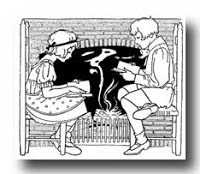 One my favorite lines in Shadowlands, a movie about C.S. Lewis and Joy Gresham, is: "We read to know we are not alone."
One my favorite lines in Shadowlands, a movie about C.S. Lewis and Joy Gresham, is: "We read to know we are not alone."I'm a writer who loves to read. What I have learned from other people's writing cannot be measured.Their research and insight have enabled me to answer questions, relax or understand more about something that interests me.
A great day is one where I can sit in a comfy chair with a blanket over my lap, a cup of coffee or tea by my side, and what I call a real book in my hands - the kind with printed pages, maybe some illustrations and sometimes, if it is an old book, a certain smell. Those days are luxurious.
In the last few years, some brick and mortar bookstores have disappeared. This has largely been due to the change in the publishing industry. With electronic readers, laptops and phones that connect to the internet, the business of publishing newspapers, magazines and books will never be the same.
Happily, people are reading more - not less - because of these changes. Although I prefer reading a book in print, I travel so much that I seldom carry heavy books with me. Even though I don't have a reader, I download free classics on my laptop and take a library with me. Something to read is always available.
 While reading someone else's writing, I get ideas for my own articles, devotionals or books. If I didn't want someone else to read what I was writing, I would simply keep a private journal, like I used to do. Occasionally, someone will give me feedback about something I wrote and I know that I have connected with my reader. That is gratifying because I write to let others know they are not alone.
While reading someone else's writing, I get ideas for my own articles, devotionals or books. If I didn't want someone else to read what I was writing, I would simply keep a private journal, like I used to do. Occasionally, someone will give me feedback about something I wrote and I know that I have connected with my reader. That is gratifying because I write to let others know they are not alone.It was so important to God we know His love is real that He sent His Son, His living Word, to make that connection between Him and us. His inspired Word, the Bible, lets us know we are not alone.
In the beginning was the Word, and the Word was with God, and the Word was God. He was in the beginning with God....And the Word became flesh, and dwelt among us, and we saw His glory, glory as of the only begotten from the Father, full of grace and truth (John 1:1-2, 14 NAS).
Published on October 29, 2012 05:29
October 24, 2012
From Frazzled to Fruitful
When we lived in California, we had many fruit trees in our yard. Some produced better than others. The lemon tree in our front yard had some really strange looking lemons. We were told it was because we were not giving the tree enough water. Neglect had produced a less than superior product.
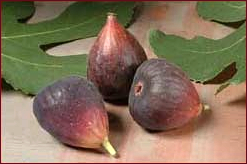 However, in our back yard, we had the most prolific fig tree I have ever seen. When we moved into our house, that fig tree was practically a stump because it had been pruned so much. I remember wondering if it would produce any fruit at all. Since it was in an area where we planted grass and watered regularly, that particular tree was not neglected. It produced the most amazingly bountiful crop of figs. Attention to that tree brought the desired results.
However, in our back yard, we had the most prolific fig tree I have ever seen. When we moved into our house, that fig tree was practically a stump because it had been pruned so much. I remember wondering if it would produce any fruit at all. Since it was in an area where we planted grass and watered regularly, that particular tree was not neglected. It produced the most amazingly bountiful crop of figs. Attention to that tree brought the desired results.
It is like that in our spiritual lives. As Christians, those of us who desire to produce fruit in our lives must pay attention to how we are living. The fruit of the Spirit, present in every believer, may lie dormant from neglect, but when the Spirit is allowed to nurture what is already there, there is an obvious difference in productivity.
Life is full of stresses - some good, some bad - but we sometimes allow those stresses to rob us of the joy of the Lord and the peace that comes with knowing Him. Instead we feel frazzled or stressed out.
So often we measure ourselves - or others measure us - by what we do. Our measurement should be God's standards. Paul gives a list of the elements of the fruit of the Spirit of Christ. That fruit is measured not by what we do, but our character, who we are in Christ. God does desire that we produce tangible fruit, but it is His character that will produce good works, not ours.
How is it possible to keep from being frazzled or completely stressed by the cares of life? Act and react in love. An action is something you originate. A reaction is how you respond to other's actions. When we act and react in His love, God will do through us what we cannot accomplish in our own strength.
Paul describes some elements of a frazzled or stressed lifestyle just before he lists the fruit of the Spirit. Immorality, impurity, sensuality, idolatry, sorcery, enmities, strife, jealousy, outbursts of anger, disputes, dissensions, factions, envying, drunkenness, carousing, etc. - not one of these deeds of the flesh brings to mind a calm and fruitful person who is trusting in God. They are, in fact, opposites.
Inspired by the Holy Spirit, Paul describes the cure for a frazzled and stressed out lifestyle by his next words,which are:
But the fruit of the Spirit is love, joy, peace, patience, kindness, goodness, faithfulness, gentleness, self-control; against such things there is no law...If we live by the Spirit, let us also walk by the Spirit (Galatians 5:22-23, 25 NAS).

 However, in our back yard, we had the most prolific fig tree I have ever seen. When we moved into our house, that fig tree was practically a stump because it had been pruned so much. I remember wondering if it would produce any fruit at all. Since it was in an area where we planted grass and watered regularly, that particular tree was not neglected. It produced the most amazingly bountiful crop of figs. Attention to that tree brought the desired results.
However, in our back yard, we had the most prolific fig tree I have ever seen. When we moved into our house, that fig tree was practically a stump because it had been pruned so much. I remember wondering if it would produce any fruit at all. Since it was in an area where we planted grass and watered regularly, that particular tree was not neglected. It produced the most amazingly bountiful crop of figs. Attention to that tree brought the desired results.It is like that in our spiritual lives. As Christians, those of us who desire to produce fruit in our lives must pay attention to how we are living. The fruit of the Spirit, present in every believer, may lie dormant from neglect, but when the Spirit is allowed to nurture what is already there, there is an obvious difference in productivity.
Life is full of stresses - some good, some bad - but we sometimes allow those stresses to rob us of the joy of the Lord and the peace that comes with knowing Him. Instead we feel frazzled or stressed out.
So often we measure ourselves - or others measure us - by what we do. Our measurement should be God's standards. Paul gives a list of the elements of the fruit of the Spirit of Christ. That fruit is measured not by what we do, but our character, who we are in Christ. God does desire that we produce tangible fruit, but it is His character that will produce good works, not ours.
How is it possible to keep from being frazzled or completely stressed by the cares of life? Act and react in love. An action is something you originate. A reaction is how you respond to other's actions. When we act and react in His love, God will do through us what we cannot accomplish in our own strength.
Paul describes some elements of a frazzled or stressed lifestyle just before he lists the fruit of the Spirit. Immorality, impurity, sensuality, idolatry, sorcery, enmities, strife, jealousy, outbursts of anger, disputes, dissensions, factions, envying, drunkenness, carousing, etc. - not one of these deeds of the flesh brings to mind a calm and fruitful person who is trusting in God. They are, in fact, opposites.
Inspired by the Holy Spirit, Paul describes the cure for a frazzled and stressed out lifestyle by his next words,which are:
But the fruit of the Spirit is love, joy, peace, patience, kindness, goodness, faithfulness, gentleness, self-control; against such things there is no law...If we live by the Spirit, let us also walk by the Spirit (Galatians 5:22-23, 25 NAS).
Published on October 24, 2012 07:43
October 19, 2012
Learning as a Choice
I recently attended a class my husband taught on how adults learn. I learned a lot during that session. He defined learning as a change of behavior as a result of experience.
In school, many children learn simply because it is a requirement. The goal is to know the material well enough to pass the test and move on. In that environment, because some subjects are not particularly interesting to the student, the information may be lost after the testing is over. Only those subjects that are of the student's choosing are retained and built upon.
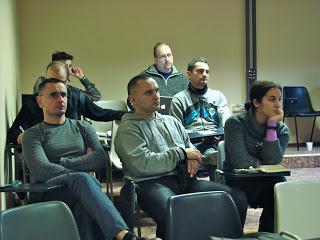 An adult, more often than not, learns because he wants to. When a person is motivated to learn, he will do much more than what is required. He will research on his own and study often in order to increase his knowledge.
An adult, more often than not, learns because he wants to. When a person is motivated to learn, he will do much more than what is required. He will research on his own and study often in order to increase his knowledge.
As a flight instructor, my husband was also able to give an illustration about those who want to learn to fly. The closer in time the lessons are, the faster the learning. In other words, it is best to fly once or twice a week rather than once a month. The frequency helps set in place the things that have been learned, making it easier to build upon the next principle.
Experiential learning is much better than knowledge of theory of a subject. When you put into practice things you have learned, they become part of you. It is more than temporary knowledge. It is true learning.
Many people know things about God. Some have even gone to religious schools or passed catechism classes. However, some are like the demons who believe that there is one God and shudder. Knowing about God does not mean that someone has experienced His love, truly knowing Him.
Only those who want to experience a relationship with God really do know Him. The test of that knowledge is whether or not God's love, received through His Son Jesus Christ, resides within you.
Those who truly know Him will want to spend time with Him. Just as student pilots retain their desired information better when they fly more often, believers grow in the Lord by spending frequent time with Him - learning from His Word and His nature. Christians are different because of Jesus. Experiencing His love changes their behavior. They want to become like Him.
"You search the Scriptures because you think that in them you have eternal life; it is these that testify about Me: and you are unwilling to come to Me so that you may have life. I do not receive glory from men; but I know you, that you do not have the love of God in yourselves (John 5:39-42). The one who does not love does not know God, for God is love... We love because He first loved us (1 John 4:8, 19 NASB).

In school, many children learn simply because it is a requirement. The goal is to know the material well enough to pass the test and move on. In that environment, because some subjects are not particularly interesting to the student, the information may be lost after the testing is over. Only those subjects that are of the student's choosing are retained and built upon.
 An adult, more often than not, learns because he wants to. When a person is motivated to learn, he will do much more than what is required. He will research on his own and study often in order to increase his knowledge.
An adult, more often than not, learns because he wants to. When a person is motivated to learn, he will do much more than what is required. He will research on his own and study often in order to increase his knowledge.As a flight instructor, my husband was also able to give an illustration about those who want to learn to fly. The closer in time the lessons are, the faster the learning. In other words, it is best to fly once or twice a week rather than once a month. The frequency helps set in place the things that have been learned, making it easier to build upon the next principle.
Experiential learning is much better than knowledge of theory of a subject. When you put into practice things you have learned, they become part of you. It is more than temporary knowledge. It is true learning.
Many people know things about God. Some have even gone to religious schools or passed catechism classes. However, some are like the demons who believe that there is one God and shudder. Knowing about God does not mean that someone has experienced His love, truly knowing Him.
Only those who want to experience a relationship with God really do know Him. The test of that knowledge is whether or not God's love, received through His Son Jesus Christ, resides within you.
Those who truly know Him will want to spend time with Him. Just as student pilots retain their desired information better when they fly more often, believers grow in the Lord by spending frequent time with Him - learning from His Word and His nature. Christians are different because of Jesus. Experiencing His love changes their behavior. They want to become like Him.
"You search the Scriptures because you think that in them you have eternal life; it is these that testify about Me: and you are unwilling to come to Me so that you may have life. I do not receive glory from men; but I know you, that you do not have the love of God in yourselves (John 5:39-42). The one who does not love does not know God, for God is love... We love because He first loved us (1 John 4:8, 19 NASB).
Published on October 19, 2012 08:25
October 14, 2012
Is the Grass Really Greener on the Other Side?
Driving down a Texas country road is an interesting experience. You can pass large manicured ranches, trailer homes that have seen better days, old barns that must have been beautiful at one time, oil rigs, hay bales, and much more. The interesting terrain is adorned in a variety of ways, but the land is often occupied by livestock - horses, sheep, deer or cattle.
 On one such drive, I observed an interesting situation. A Texas longhorn - a very large Texas longhorn - had forced his head through a fence in order to eat what seemed to be the greener grass on the other side. Whether he had done this before or not, I don't know, but I wondered how he was going to get his head back through the fence once he was through with his snack. It certainly must have been easier to put his head through the fence than to back it up again.
On one such drive, I observed an interesting situation. A Texas longhorn - a very large Texas longhorn - had forced his head through a fence in order to eat what seemed to be the greener grass on the other side. Whether he had done this before or not, I don't know, but I wondered how he was going to get his head back through the fence once he was through with his snack. It certainly must have been easier to put his head through the fence than to back it up again.
I guess I will never know his trick as we didn't wait until he was through to see how he did it. I knew that if he had problems, I wouldn't be able to help him. I am not comfortable around a large steer and could possibly get injured in the process. It would have taken someone who knew how to handle such an animal to assist him if he needed help.
People are a lot like that Texas longhorn. We often don't think of the consequences when we see something we want. It appears to be there for the taking. The grass seems greener on the other side.
Like that Texas steer, reaching out to take what we want may lead to complications. Once the decision is made, we may discover that it was not good for us after all. It is possible to get stuck in the fence, having to call on others to help us, possibly injuring ourselves and them in the process.
That is exactly how sin began. Can't you imagine that Adam and Eve wished they had left that forbidden fruit alone? On their own, they could not get back to the place where they had been before they sinned. They lost their place in the Garden of Eden.
God knew how to restore His relationship with man. He sent His Son, who was injured and died in the process of helping us, to bring us back where we need to be - safe and secure on God's side.
When the woman saw that the tree was good for food, and that it was a delight to the eyes, and that the tree was desirable to make one wise, she took from its fruit and ate, and she also gave it to her husband ... and he ate...Then the Lord God said, "Behold, the man has become like one of Us, knowing good and evil; and now, he might stretch out his hand, and take also from the tree of life and live forever" - therefore the Lord God sent him out from the Garden of Eden (Genesis 3:6-22-23)....Then he showed me a river of the water of life...On either side of the river was the tree of life...There will no longer be any curse; and the throne of God and of the Lamb will be in it, and His bond-servants will serve Him (Revelation 22:1-3).
 On one such drive, I observed an interesting situation. A Texas longhorn - a very large Texas longhorn - had forced his head through a fence in order to eat what seemed to be the greener grass on the other side. Whether he had done this before or not, I don't know, but I wondered how he was going to get his head back through the fence once he was through with his snack. It certainly must have been easier to put his head through the fence than to back it up again.
On one such drive, I observed an interesting situation. A Texas longhorn - a very large Texas longhorn - had forced his head through a fence in order to eat what seemed to be the greener grass on the other side. Whether he had done this before or not, I don't know, but I wondered how he was going to get his head back through the fence once he was through with his snack. It certainly must have been easier to put his head through the fence than to back it up again.I guess I will never know his trick as we didn't wait until he was through to see how he did it. I knew that if he had problems, I wouldn't be able to help him. I am not comfortable around a large steer and could possibly get injured in the process. It would have taken someone who knew how to handle such an animal to assist him if he needed help.
People are a lot like that Texas longhorn. We often don't think of the consequences when we see something we want. It appears to be there for the taking. The grass seems greener on the other side.
Like that Texas steer, reaching out to take what we want may lead to complications. Once the decision is made, we may discover that it was not good for us after all. It is possible to get stuck in the fence, having to call on others to help us, possibly injuring ourselves and them in the process.
That is exactly how sin began. Can't you imagine that Adam and Eve wished they had left that forbidden fruit alone? On their own, they could not get back to the place where they had been before they sinned. They lost their place in the Garden of Eden.
God knew how to restore His relationship with man. He sent His Son, who was injured and died in the process of helping us, to bring us back where we need to be - safe and secure on God's side.
When the woman saw that the tree was good for food, and that it was a delight to the eyes, and that the tree was desirable to make one wise, she took from its fruit and ate, and she also gave it to her husband ... and he ate...Then the Lord God said, "Behold, the man has become like one of Us, knowing good and evil; and now, he might stretch out his hand, and take also from the tree of life and live forever" - therefore the Lord God sent him out from the Garden of Eden (Genesis 3:6-22-23)....Then he showed me a river of the water of life...On either side of the river was the tree of life...There will no longer be any curse; and the throne of God and of the Lamb will be in it, and His bond-servants will serve Him (Revelation 22:1-3).
Published on October 14, 2012 21:16
October 9, 2012
The Privilege and Responsibility of Voting
Everyone knows that voting is a privilege. Not every country allows their citizens to choose their government officials. Even some countries who have elections rig the outcome, so that it is not really the voting of the people that elects an official. It is a charade.
I am very fortunate to live in a country where I get to have a say - realizing that even though my vote counts, the candidate of my choice may not be elected. I often say that I don't have a right to complain if I don't vote. So, I not only understand the privilege that is mine, but the responsibility that goes along with that privilege.
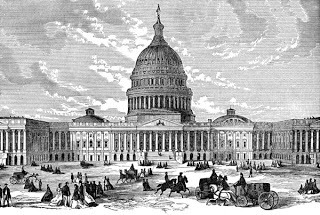 Voting is more than a right. My responsibility is not only to cast my vote, but to do so with as much information as possible. Unfortunately, that means filtering out the prejudice of the media and the innuendo of the opponents. In America, this has become more difficult than ever before. It is a shame that politicians don't have enough positive things to say about themselves and their own agenda that they must take up their advertising time with accusations against the other candidate.
Voting is more than a right. My responsibility is not only to cast my vote, but to do so with as much information as possible. Unfortunately, that means filtering out the prejudice of the media and the innuendo of the opponents. In America, this has become more difficult than ever before. It is a shame that politicians don't have enough positive things to say about themselves and their own agenda that they must take up their advertising time with accusations against the other candidate.
Particularly distasteful are those politicians who are so careful about their stand on an issue that it is really difficult to find out what they believe. Many of them wait to see how the population sways on an issue - then they will go that way. Whatever happened to integrity? Francis Bacon, Sr. (English lawyer and philosopher 1561-1626) said, "It's not what we eat but what we digest that makes us strong; not what we gain but what we save that makes us rich; not what we read but what we remember that makes us learned; and not what we profess but what we practice that gives us integrity."
In the end, of course, only God knows whether what we say matches who we are and what we believe. He does make it clear, however, that He will judge us accordingly.
For the mouth speaks out of that which fills the heart. The good man brings out of his good treasure what is good; and the evil man brings out of his evil treasure what is evil. But I tell you that every careless word that people speak, they shall give an accounting for it in the day of judgement. For by your words you will be justified, and by your words you will be condemned" (Matthew 12: 34b-37).

I am very fortunate to live in a country where I get to have a say - realizing that even though my vote counts, the candidate of my choice may not be elected. I often say that I don't have a right to complain if I don't vote. So, I not only understand the privilege that is mine, but the responsibility that goes along with that privilege.
 Voting is more than a right. My responsibility is not only to cast my vote, but to do so with as much information as possible. Unfortunately, that means filtering out the prejudice of the media and the innuendo of the opponents. In America, this has become more difficult than ever before. It is a shame that politicians don't have enough positive things to say about themselves and their own agenda that they must take up their advertising time with accusations against the other candidate.
Voting is more than a right. My responsibility is not only to cast my vote, but to do so with as much information as possible. Unfortunately, that means filtering out the prejudice of the media and the innuendo of the opponents. In America, this has become more difficult than ever before. It is a shame that politicians don't have enough positive things to say about themselves and their own agenda that they must take up their advertising time with accusations against the other candidate. Particularly distasteful are those politicians who are so careful about their stand on an issue that it is really difficult to find out what they believe. Many of them wait to see how the population sways on an issue - then they will go that way. Whatever happened to integrity? Francis Bacon, Sr. (English lawyer and philosopher 1561-1626) said, "It's not what we eat but what we digest that makes us strong; not what we gain but what we save that makes us rich; not what we read but what we remember that makes us learned; and not what we profess but what we practice that gives us integrity."
In the end, of course, only God knows whether what we say matches who we are and what we believe. He does make it clear, however, that He will judge us accordingly.
For the mouth speaks out of that which fills the heart. The good man brings out of his good treasure what is good; and the evil man brings out of his evil treasure what is evil. But I tell you that every careless word that people speak, they shall give an accounting for it in the day of judgement. For by your words you will be justified, and by your words you will be condemned" (Matthew 12: 34b-37).
Published on October 09, 2012 13:43
September 27, 2012
Yeast Really Does Permeate
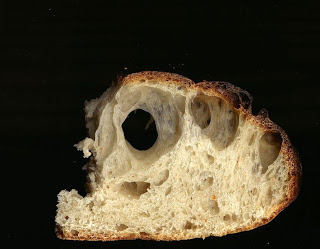 I love to bake, but I seldom have to buy yeast. For years, I have made white bread, wheat bread, biscuits, pancakes, cakes, cinnamon rolls, pizza dough and other variations of breads from two different sourdough starters that I obtained years ago. One I have had for over thirty years, the other for over twenty.
I love to bake, but I seldom have to buy yeast. For years, I have made white bread, wheat bread, biscuits, pancakes, cakes, cinnamon rolls, pizza dough and other variations of breads from two different sourdough starters that I obtained years ago. One I have had for over thirty years, the other for over twenty.Although I have recipes for and a mix for sourdough starter, I have never made one up. I have kept mine around for so long that if my friends and family run out or let theirs go bad, they always know they can come back to me for another one.
I didn't make the starters, but someone had to. The recipe I have for what some people call Herman or a starter for Amish friendship bread calls for flour, water and yeast. To keep it alive, you must add milk, flour and sugar. The other starter I have is maintained with potato flakes, sugar and water, but at some point in the past the starter was made with yeast.
I have often thought of the lasting quality of the yeast that began this somewhat magical process. As long as I continue to feed these sourdough starters every week or so, they will probably last as long as I do. The yeast that helped birth these products still permeates the dough that I mix up so that I can continue to enjoy baking with them. That is amazing to me.
Just as amazing, or really more so, is the realization that the kingdom of heaven will never be destroyed. I know that is true because God created it for His glory and for our enjoyment. What He did so long ago will last forever. His presence permeates all creation. He invites us to join Him in His kingdom by accepting His gift of grace through His Son, Jesus Christ.
He spoke another parable to them, "The kingdom of heaven is like leaven, which a woman took and hid in three pecks of flour until it was all leavened" (Matthew 13:33). Jesus said to them, "I am the bread of life; he who comes to Me will not hunger, and he who believes in Me will never thirst....I am the living bread that came down out of heaven; if anyone eats of this bread, he will live forever; and the bread also which I will give for the life of the world is My flesh" (John 6:35, 51).
Published on September 27, 2012 12:36
September 20, 2012
Traffic Tension
 I have spent a lot of time on the U.S. interstates as well as autobahns in Europe. All of these public highways have something in common - there is a possibility for congestion and danger. Caution should be observed at all times.
I have spent a lot of time on the U.S. interstates as well as autobahns in Europe. All of these public highways have something in common - there is a possibility for congestion and danger. Caution should be observed at all times.Driving on any road demands full attention, but especially in heavy traffic on major highways. Seldom do you find yourself on a highway by yourself. There are times when you are completely surrounded. You must be aware of the speed and position of cars around you. If any one of them makes a sudden unexpected move, you must be prepared. There is literally danger on every side.
Vigilance is the key. Everyone knows accidents are most likely when you are sleepy or otherwise impaired because your concentration level is not at its optimum.
The question we need to pose to ourselves in heavy traffic is what can I do to get out of a dangerous situation if it presents itself? Driving is no time to relax and become preoccupied with other things such as cell phones. I once ran off the road simply because I was placing a blanket on my child in the seat next to me (that was before children's car seats were required to be placed in the back). Thankfully, I did not have an accident, but taking my mind off my driving posed a danger to myself and my children.
Staying in the lane provided for you is a must. I am often tempted to keep my eyes fixed on the car in front of me but have often been surprised by the movement of a car on either side or behind. Using the rear view mirror and the side mirrors should become a habit.
Our spiritual life is a lot like highway driving. As soon as we allow ourselves to become distracted from the path God has set us on, danger lurks all around us. Satan is actually watching for those times when we have relaxed our guard. He knows that if we veer off our path, his job is much easier. God, however, has given us all we need to stay where we need to be.
Your word is a lamp to my feet and a light to my path (Psalm 119:105). But I say, walk by the Spirit, and you will not carry out the desire of the flesh (Galatians 5:16).
Published on September 20, 2012 13:56
September 12, 2012
The Value of a Smile
There are many good poems, songs and stories with a notation "author unknown." At some point, these artists shared part of themselves but did not think it necessary to leave their signature on their work. I often spend quite a bit of time researching to make sure an anonymous item does not have a name attached to it, but in the following case of a poem which I am sure many of you have read and benefited by, I found no name. So thanks to the unknown author who brightened my day - and hopefully yours as well.
A Smile
A smile costs nothing, but gives much.It takes but a moment, but the memory of it sometimes lasts forever.None is so rich or mighty that he can get along without it.And none is so poor but that he can be made rich by it.
A smile creates happiness in the home,fosters good will in business and is the best countersign of friendship.It brings rest to the weary, cheer to the discouraged, sunshine to the sad,and it is natures' best antidote for trouble.Yet it cannot be bought, begged, borrowed, or stolen, for it is something that is of no value to anyone until it is given away.
Some people are too tired to give you a smile.Give them one of yours as none needs a smile so much as he who has no more to give.

We touch each other with our smiles. That is the way God made us.
A merry heart makes a cheerful countenance (Proverbs 15:13).
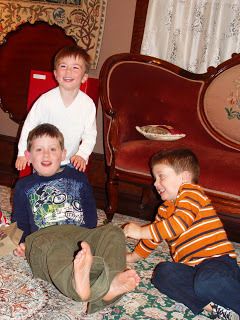

A Smile
A smile costs nothing, but gives much.It takes but a moment, but the memory of it sometimes lasts forever.None is so rich or mighty that he can get along without it.And none is so poor but that he can be made rich by it.
A smile creates happiness in the home,fosters good will in business and is the best countersign of friendship.It brings rest to the weary, cheer to the discouraged, sunshine to the sad,and it is natures' best antidote for trouble.Yet it cannot be bought, begged, borrowed, or stolen, for it is something that is of no value to anyone until it is given away.
Some people are too tired to give you a smile.Give them one of yours as none needs a smile so much as he who has no more to give.

We touch each other with our smiles. That is the way God made us.
A merry heart makes a cheerful countenance (Proverbs 15:13).

Published on September 12, 2012 00:21
September 7, 2012
Dormant Damage
A few years ago, we purchased a beautiful antique dining table in Germany. It had been obtained from a farmer in southern Germany, transported up to northern Germany where it was completely disassembled and refinished. I had never seen a more beautiful dining table and chairs. It was immediately put in a container headed for the states as we were moving belongings back to the U.S. from a lengthy stay in Germany.
Several years later, I noticed dustings under some of the chairs. I shrugged it off as we had just had all the family - including grandchildren - in our house and thought what I was seeing were crumbs from the table. Upon closer inspection when I was polishing the chairs, however, I discovered holes throughout the wood on several of the chairs. What we had was an infestation of wood bores which had lain dormant all that time and now were making their way through that lovely wood.
 After much labor (and cost, I might add), we finally got the problem licked. However, much to my dismay after quite a bit more time passed, I found the remaining chairs with those telltale holes. We are going to have to go through this procedure all over again. What I thought had been resolved now has to be dealt with once more - what a shame.
After much labor (and cost, I might add), we finally got the problem licked. However, much to my dismay after quite a bit more time passed, I found the remaining chairs with those telltale holes. We are going to have to go through this procedure all over again. What I thought had been resolved now has to be dealt with once more - what a shame.
Irritations, guilt, bitterness and other stress causing situations in our lives can have some very similar effects. Like these wood bores, some things eat at our insides for years without our even realizing it. They may go unrecognized, but they are just as real as my wood bores. By the time they surface, often the damage is done.
I suppose the only remedy is to stay on top of our feelings and give them over to God right at the beginning of the uncomfortable event. God tells us to put away those things that are hurtful. We will certainly deal with them at some point. It is better to deal with them early on than to wait until damage is done and repairs have to be made.
Do not grieve the Holy Spirit of God, by whom you were sealed for the day of redemption. Let all bitterness and wrath and anger and clamor and slander be put away from you, along with all malice (Ephesians 4:30-31). Therefore, putting aside all malice and all deceit and hypocrisy and envy and all slander, like newborn babies, long for the pure milk of the word, so that by it you may grow in respect to salvation (1 Peter 2:1-2).
Several years later, I noticed dustings under some of the chairs. I shrugged it off as we had just had all the family - including grandchildren - in our house and thought what I was seeing were crumbs from the table. Upon closer inspection when I was polishing the chairs, however, I discovered holes throughout the wood on several of the chairs. What we had was an infestation of wood bores which had lain dormant all that time and now were making their way through that lovely wood.
 After much labor (and cost, I might add), we finally got the problem licked. However, much to my dismay after quite a bit more time passed, I found the remaining chairs with those telltale holes. We are going to have to go through this procedure all over again. What I thought had been resolved now has to be dealt with once more - what a shame.
After much labor (and cost, I might add), we finally got the problem licked. However, much to my dismay after quite a bit more time passed, I found the remaining chairs with those telltale holes. We are going to have to go through this procedure all over again. What I thought had been resolved now has to be dealt with once more - what a shame.Irritations, guilt, bitterness and other stress causing situations in our lives can have some very similar effects. Like these wood bores, some things eat at our insides for years without our even realizing it. They may go unrecognized, but they are just as real as my wood bores. By the time they surface, often the damage is done.
I suppose the only remedy is to stay on top of our feelings and give them over to God right at the beginning of the uncomfortable event. God tells us to put away those things that are hurtful. We will certainly deal with them at some point. It is better to deal with them early on than to wait until damage is done and repairs have to be made.
Do not grieve the Holy Spirit of God, by whom you were sealed for the day of redemption. Let all bitterness and wrath and anger and clamor and slander be put away from you, along with all malice (Ephesians 4:30-31). Therefore, putting aside all malice and all deceit and hypocrisy and envy and all slander, like newborn babies, long for the pure milk of the word, so that by it you may grow in respect to salvation (1 Peter 2:1-2).
Published on September 07, 2012 22:16



